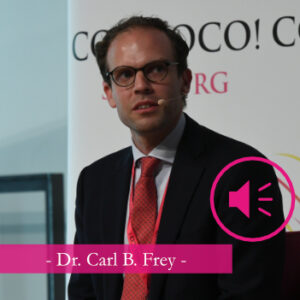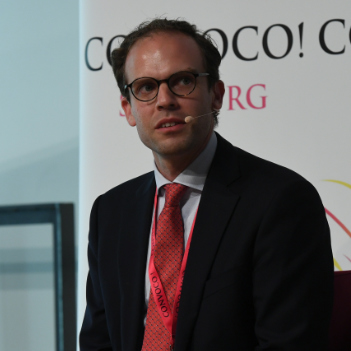
In our new CONVOCO! Podcast Corinne M. Flick speaks with Carl Frey, Director of the Future of Work programme at the Oxford Martin School, about:
Work on the Brink of Change
Here’s what he said:
With regard to the competition of resources, I think many people who want to solve the climate issue are speaking about degrowth. I believe that would be the worst possible outcome for dealing with climate change.
If the economy is not growing, your benefit is my loss and that was the society we lived in before the first industrial revolution […] That was a very violent, unpleasant society.
[Since Covid-19 requires] a coherent coordinated response, it will actually make our society somewhat more collectivist.
We need a really big breakthrough for artificial intelligence to become a transformative technology.
If you want to innovate, it’s important to reward people for standing out. Individualistic societies tend to have a comparative advantage in innovation. But they have a comparative disadvantage when it comes to coordinating things [such as] coordinating a coherent response to a pandemic.
Transition is always difficult, but at the end of it we’ve always been better off, we’ve been more productive, we’ve been richer. Technological change is the only thing that can make our lives better over the long run, at least in material terms.
This pandemic is going to exacerbate some of the inequalities we’re seeing in the labor market. Relatively skilled occupations tend to use advanced technologies. This also means that those jobs are more resilient in terms of the pandemic.
At the same time, we see that a more India style service led growth model is gaining traction, because services are increasingly becoming exportable.
I think there will still be new jobs created and I don’t see the employment apocalypse coming.


